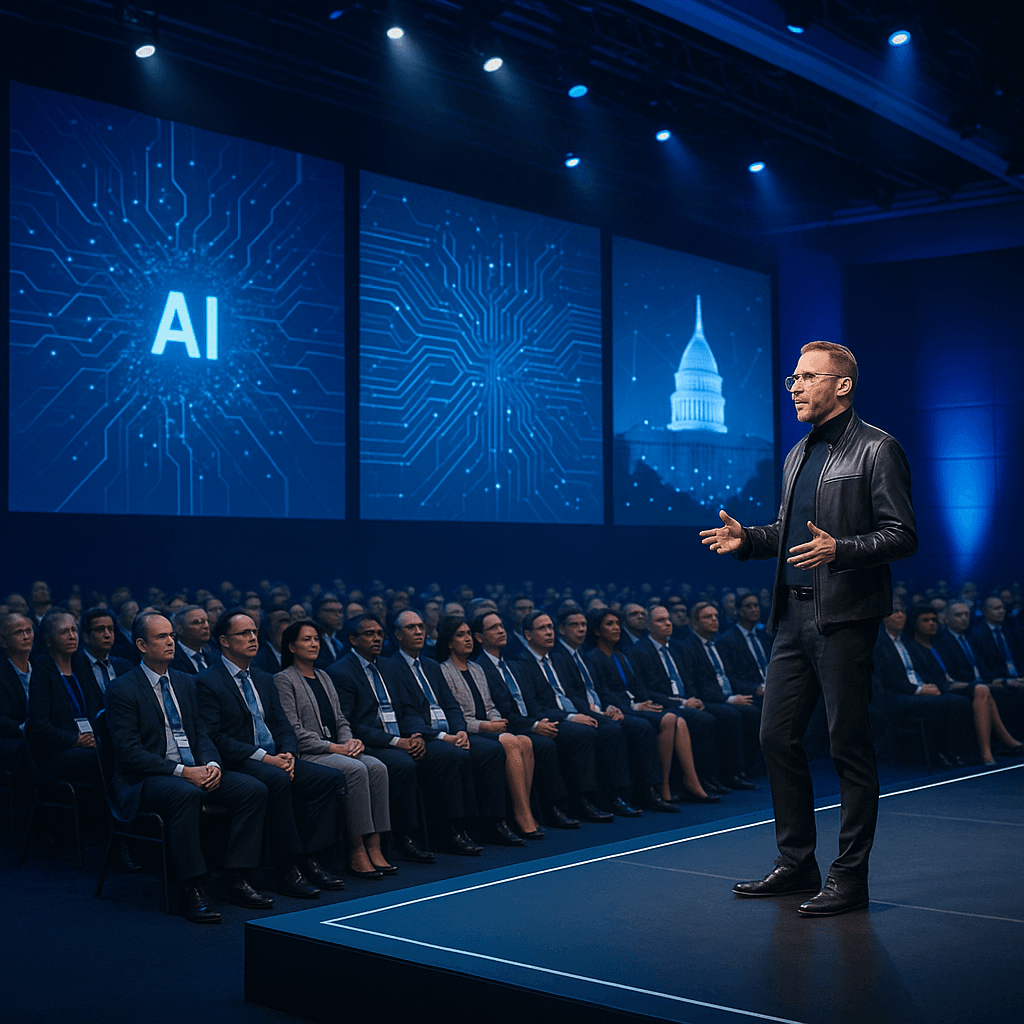NVIDIA just turned Washington D.C. into ground zero for AI's next chapter. The chip giant's GTC conference lands at the Walter E. Washington Convention Center Oct. 27-29, with CEO Jensen Huang delivering what promises to be a government-focused keynote that could reshape how federal agencies think about artificial intelligence infrastructure.
The timing isn't coincidental. NVIDIA's decision to bring GTC to the nation's capital comes as federal agencies scramble to establish AI frameworks and the Pentagon doubles down on algorithmic warfare capabilities. While past GTC events focused on developers and enterprise customers, this Washington edition targets the ultimate enterprise customer - the U.S. government.
Jensen Huang's keynote on Tuesday at 12 p.m. ET won't just unveil new hardware. Industry insiders expect him to outline how AI will transform everything from defense contracting to social services delivery. The pregame show at 8:30 a.m. featuring analysts Brad Gerstner and Patrick Moorhead suggests NVIDIA wants maximum media coverage for whatever announcement is coming.
The conference's 70+ sessions tell the story of where AI is heading next. Agentic AI - autonomous systems that can take actions without human oversight - dominates the agenda alongside quantum computing integration and AI-native telecom networks. These aren't academic exercises; they're the building blocks of next-generation government infrastructure.
NVIDIA's stock has surged 180% this year as data centers worldwide upgraded to handle AI workloads. But the real prize might be federal contracts. The Defense Department alone allocated $1.8 billion for AI initiatives in fiscal 2024, while civilian agencies from the IRS to the National Weather Service are piloting AI-powered systems.
The Walter E. Washington Convention Center becomes more than a venue - it's a statement. Unlike Silicon Valley conferences that feel removed from policy reality, GTC DC puts NVIDIA executives in the same building where lobbyists work and regulators make decisions. The company's live-blogging promise starting Monday suggests they want to control the narrative around whatever gets announced.
For attendees still grabbing exhibits-only passes, the real action happens in side conversations. Government contractors, defense officials, and tech leaders will hash out implementation timelines and budget allocations that could define AI adoption across federal agencies. NVIDIA's H100 chips already power most major AI models, but government sales operate on different cycles and requirements.












